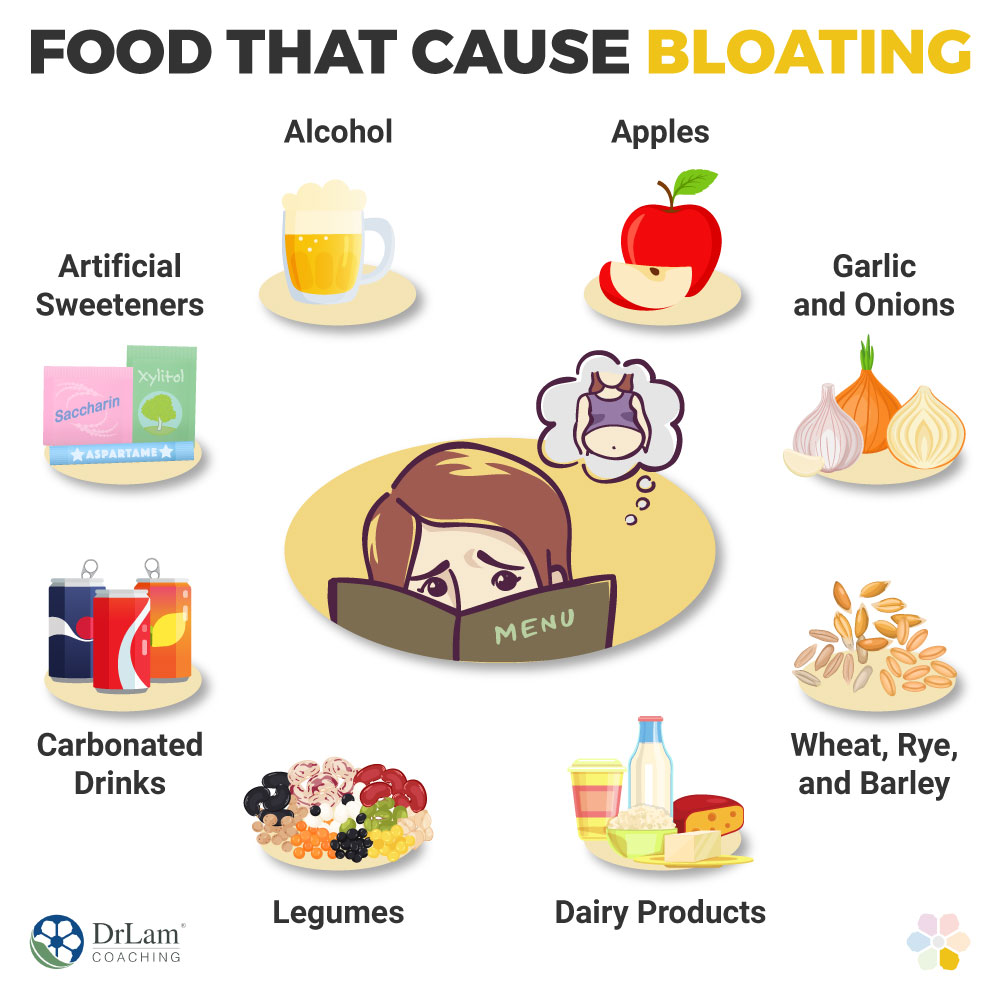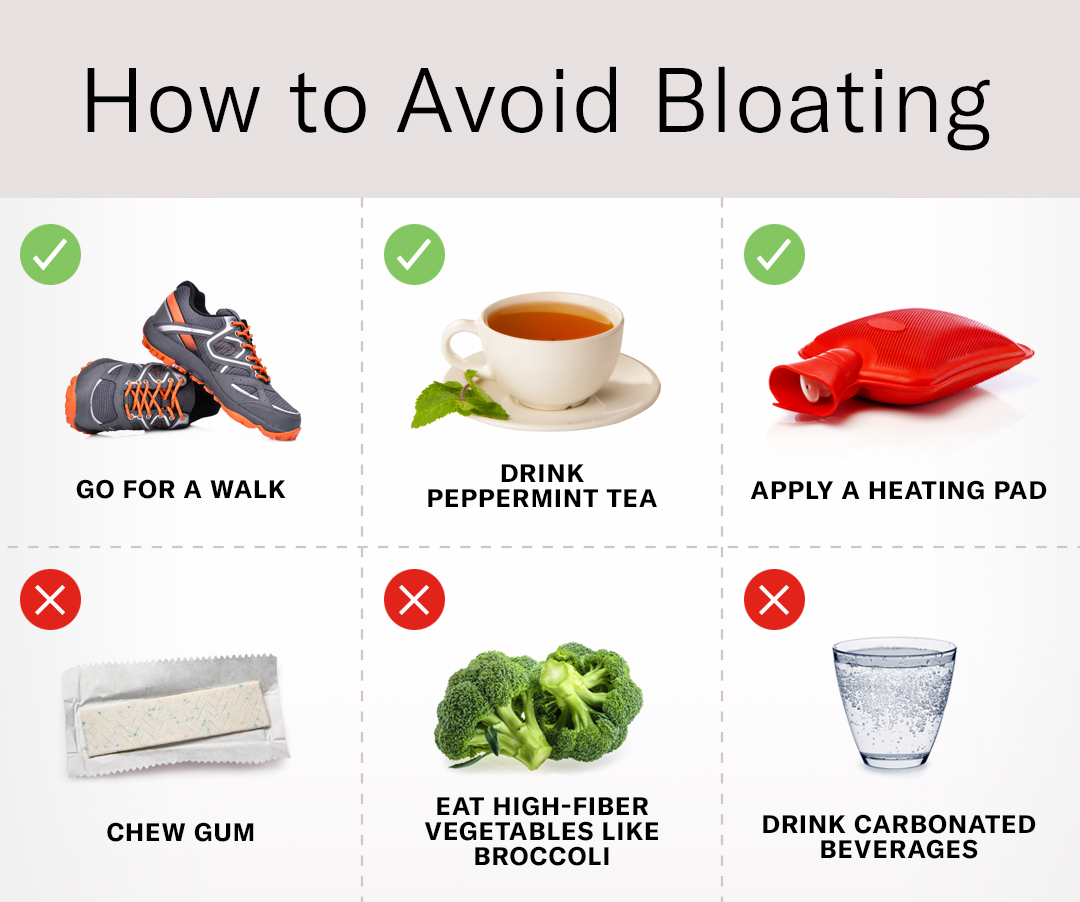:max_bytes(150000):strip_icc()/GettyImages-1499661935-76f60a6a2b104a54bd6b9bb03520e890.jpg)
Abdominal bloating, medically known as abdominal distention, is a condition in which the abdomen feels full, bloated, and often distended. It is a very common symptom experienced by both men and women and can be due to a variety of causes, from harmless to serious medical conditions. The main cause of bloating is the accumulation of gas in the intestines, which can occur due to digestive processes, the consumption of certain foods rich in fiber, legumes, lactose, fructose or sorbitol, as well as carbonated drinks. In addition, swallowing too much air while eating or drinking (aerophagia) can also cause bloating.
Gastrointestinal disorders such as irritable bowel syndrome (IBS), celiac disease, lactose intolerance, or an improper composition of the gut microbiome are other common causes of bloating. These conditions can interfere with the normal digestion and absorption of food, causing bloating, gas, and sometimes pain. Hormonal changes, especially in women (such as before menstruation or during pregnancy), can also cause temporary bloating due to water retention and the effects of hormones on gastrointestinal motility.
What causes bloating?
Bloating can occur for a number of reasons, which fall into a few main categories: digestive system disorders, eating habits, air swallowing (aerophagia), and medical conditions.
Digestive disorders are one of the most common causes of bloating. Irritable bowel syndrome (IBS), inflammatory bowel disease (eg, Crohn's disease, ulcerative colitis), celiac disease, and functional dyspeptic disorders can cause increased gas production and pain. These conditions can interfere with the normal digestion and absorption of food, causing gas and bloating.
Dietary habits also play an important role. Foods high in fiber, legumes, lactose (in lactose intolerance), fructose, and sorbitol can cause bloating in some people. Carbonated drinks and fast food consumption can increase the amount of air in the digestive tract and also contribute to the feeling of bloating.
Aerophagia, or excessive swallowing of air, is another cause of bloating. This can happen from eating too fast, talking while eating, drinking through a straw, smoking or chewing gum. Extra air in the intestines can cause bloating and discomfort.
Health conditions such as hormonal changes (such as before menstruation or during pregnancy), medications (as a side effect) and even stress and anxiety can affect bowel motility and gas production. Hormonal fluctuations can cause fluid retention and increased food sensitivities, and stress can affect the digestive process, leading to bloating.
Less commonly, abdominal bloating may be associated with more serious medical conditions, such as ascites (fluid accumulation in the abdominal cavity, often due to liver cirrhosis or cancer), abdominal tumors, obstruction in the gastrointestinal tract, or certain metabolic diseases, such as diabetes, which may have affect intestinal motility.

Abdominal bloating and the symptoms that cause it
Bloating is a common condition that causes not only physical discomfort and bloating, but can also be associated with a variety of other symptoms that can vary greatly from person to person and their health status. The main symptom that individuals experience is palpable or visible abdominal distension, which is often accompanied by a feeling that the abdomen is full or tense, even after a small amount of food is consumed. This sensation can be temporary or long-lasting, depending on the cause of the bloating.
In addition to the main symptom of bloating, other related symptoms may occur, including:
- Gas formation and passing: Due to the increased accumulation of gas in the intestines, individuals may experience frequent passing of gas, which can be both embarrassing and painful.
- Pain or discomfort in the abdominal area: Pains of varying intensity can be felt in the abdominal area, sometimes the pain can be sharp or spasmodic, especially after a meal or before the release of gas.
- Abdominal heaviness or pressure: Individuals may feel heaviness or pressure in the lower abdomen, which can cause general discomfort.
- Digestive disorders: Bloating is often accompanied by other gastrointestinal disorders, such as heartburn, constipation or, conversely, diarrhea. This suggests that bloating may be related to digestive system dysfunction.
- Feeling full: A quick feeling of fullness after eating, even after consuming a small amount of food, can be associated with bloating, which reduces the amount of food eaten.
- Nausea or vomiting: In some individuals, bloating can cause nausea or even vomiting, especially if the bloating is associated with certain gastrointestinal conditions.
- General discomfort and fatigue: Prolonged or intense bloating can cause general discomfort and fatigue, which reduces the overall quality of life.
These symptoms can indicate both harmless and more serious medical conditions, so it's important to monitor the frequency, intensity, and duration of symptoms. If bloating is persistent or occurs along with other warning symptoms, such as unexplained weight loss, gastrointestinal bleeding, or severe abdominal pain, you should seek medical attention. An accurate assessment of symptoms and a thorough medical examination will help determine the cause and the appropriate treatment plan.
Foods that can cause bloating
Bloating is a common gastrointestinal discomfort that can be caused by various foods and drinks. This phenomenon occurs due to increased gas formation or slowed passage of food through the digestive system, which causes abdominal distension and tension. While individual sensitivities to certain foods may vary, there are some general categories that are commonly associated with bloating.
Legumes
For example, beans, lentils, peas and other legumes. These foods are rich in fiber and oligosaccharides that cannot be fully digested by human digestive enzymes. This means that these foods reach the large intestine undigested, where they are fermented by bacteria, causing gas formation.
Complex carbohydrates
For example, wheat and sorrel, which are sources of fructans. These carbohydrates can also be difficult to digest and cause bloating.
Lactose
Gas and bloating can also be caused by products containing lactose, especially in people with lactose intolerance. This includes dairy products such as milk, cheese and ice cream.
Fructose
High levels of fructose found in some fruits (such as apples, pears, mangoes) and added sugars (such as high fructose corn syrup) can also cause bloating. Fructose malabsorption, a condition in which the intestines do not absorb fructose properly, can cause bloating and gas.
Carbonated drinks
Carbon dioxide in carbonated beverages, such as sparkling water or other beverages, can also cause bloating and gas as the gas enters the digestive tract.
Sorbitol and other sugar alcohols
Sorbitol, xylitol, and mannitol, which are often used as artificial sweeteners in fish, gummies, and some medications, can cause bloating and gas because these sugars are fermented in the gut.
Fibers
Although fiber is important for a healthy digestive system, consuming too much of it, especially if the body is not used to it, can cause bloating. This is especially true of insoluble fiber, which is found in some grains and vegetables.
Adequate consumption of these foods, taking into account personal sensitivities and health status, can help reduce bloating. It is important to emphasize that although certain foods can cause bloating, a healthy and balanced diet is important for overall health. Eating smaller portions, eating more slowly, and keeping a close eye on foods that cause unwanted symptoms can sometimes help. Individuals who have difficulty managing bloating may benefit from consulting with a healthcare professional or dietitian to develop an individualized nutrition plan.

Can abdominal bloating be prevented?
A few key lifestyle and dietary changes that aim to reduce gas and improve digestion can help prevent bloating. Although individual sensitivities and reactions to certain foods may vary, there are general strategies that help most people reduce or avoid bloating.
- Dietary regulation: Avoiding foods that are known to cause gas is an important step. These include legumes, certain complex carbohydrates (such as wheat, soursop), lactose-containing products, high-fructose fruits and drinks, carbonated drinks, and artificial sweeteners such as sorbitol. Keeping a food diary can help you identify which foods trigger your symptoms.
- Reduce air swallowing: Eating slowly, chewing food thoroughly and avoiding talking while eating can reduce air swallowing. Drinking through a straw, chewing gum, and smoking should be avoided, as these habits can also increase air entry into the gastrointestinal tract.
- Fiber intake: Although fiber is important for digestion, consuming too much of it suddenly can cause bloating. It is important to introduce fiber gradually, allowing the digestive system to adjust and drinking more water to help the fiber pass through the digestive system effectively.
- Physical activity: Regular physical activity stimulates intestinal peristalsis, helping to move food and gas through the digestive tract more quickly, reducing the possibility of bloating.
- Stress management: Stress and anxiety can affect the functioning of the gastrointestinal tract, so stress management practices such as yoga, meditation, and deep breathing exercises can help reduce bloating.
- Dietary supplements and medications: Probiotics, which improve the composition of the gut microflora, and anti-bloating medications, such as those containing simethicone, may help in some people. However, these methods should be used according to the recommendation of a doctor or nutritionist.
- Hydration: Adequate water intake is important for a smooth digestive process and can help prevent constipation, which can also lead to bloating.
- Reviewing your eating habits with a specialist: If dietary and lifestyle changes are not having the expected effect, it is important to consult a health care professional or dietician who can help you create an individualized nutrition plan or carry out further tests.
Implementing these strategies can help reduce bloating and improve overall digestive function. It is important to mention that if bloating is persistent and associated with more serious symptoms, it is necessary to consult a healthcare professional to rule out other possible health problems.
Information sources
- "Irritable bowel syndrome and its management", Journal of Medical Sciences
- "Food intolerance and digestive disorders: the role of hydrogen breath tests," Dietetics and Gastroenterology Research
- "Digestive tract imaging techniques in diagnosis," Radiology Review
# pilvo pūtimas
